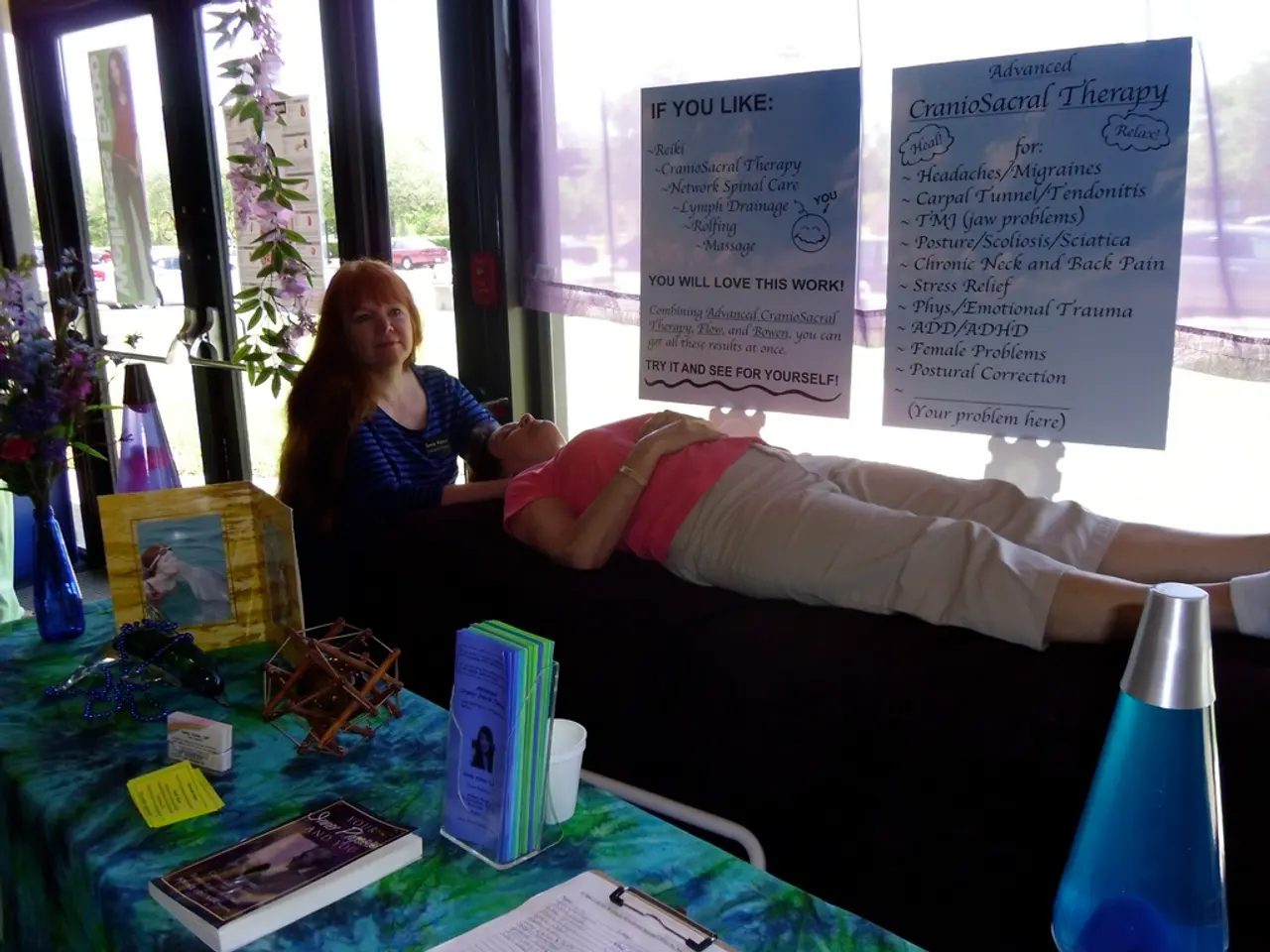Escaping Burnout's Clutches: Mental Health Self-Help Techniques
In today's fast-paced world, burnout has become a pressing concern for the younger generation, particularly Gen Z and Millennials. Recognising this, self-care strategies have emerged as effective tools to combat burnout, addressing the unique stressors and overwhelming responsibilities faced by these age groups.
According to the American Psychological Association, exercise can act as a natural "happy pill" for dealing with both anxiety and depression. Similarly, mindful breathing, a practice involving focusing on breath, is beneficial for combating burnout. Physical Activity, particularly aerobic exercise, strength training, yoga, and tai chi, can work wonders for reducing stress and improving mood.
Cultivating self-awareness is another crucial strategy. Regularly assessing emotional and energy levels helps individuals recognise early signs of burnout, allowing timely interventions. Tools like energy leadership assessments can aid this process.
Prioritising holistic self-care is essential. Integrating activities that promote physical, mental, and emotional well-being such as exercise, meditation, hobbies, and ensuring adequate rest is vital. Balanced nutrition, regular sleep (7-9 hours), and avoiding stimulants like excessive caffeine also stabilise mood and energy, reducing stress.
Setting boundaries is crucial to prevent chronic overwork. Communicating and respecting boundaries fosters a culture of balance, crucial for young adults juggling multiple roles.
Stress management techniques, such as mindfulness, deep breathing, progressive muscle relaxation, journaling, and cognitive reframing, effectively help manage stress in real time. Even brief daily mindfulness practices improve focus and emotional regulation, counteracting burnout.
Exercise triggers endorphin release, a natural stress reliever. Whether intense or gentle, movement improves sleep quality, health, and emotional resilience against burnout. Self-compassion, avoiding harsh self-criticism, reduces additional stress and promotes a positive mindset, which is vital for maintaining motivation and preventing burnout.
Leveraging digital wellness tools, particularly telehealth services, wellness apps, and digital mental health resources, provides accessible, patient-centric care and stress relief resources. Millennials especially benefit from these resources.
Emphasising work-life flexibility is not just a perk but a foundational tool to help young adults balance caregiving, work, and personal time, dramatically reducing burnout risk.
Developing a self-care plan, which may include creative outlets like art therapy, music, writing, or journaling, can help reclaim joy and fend off burnout. Building social connections through quality time, support groups, or professional help can combat stress and burnout effectively.
Hydration is important for maintaining a sharp mind and combating burnout. Whole grains like brown rice and oats can help keep blood sugar in check and provide steady energy. Omega-3 Fatty Acids found in fish, flaxseeds, and walnuts are beneficial for brain health and can help combat burnout.
Research has shown that burnout affects the brain's wiring, similar to depression, and can lead to symptoms such as chronic fatigue and insomnia, impaired concentration and forgetfulness, increased illness, loss of appetite, anxiety and depression, detachment and isolation, poor performance, and frequent colds.
The Gallup Organization found that 76% of employees experience burnout at least sometimes, and 28% experience it "very often" or "always." Limiting screen time before bedtime can also contribute to better sleep.
In conclusion, self-care strategies equip Gen Z and Millennials to handle their unique pressures—from career challenges to caregiving responsibilities—building resilience and preventing burnout effectively.
- Mindful breathing, similar to exercise, can work wonders for reducing stress and improving mood, serving as a natural tool to combat burnout in Gen Z and Millennials.
- Regular journaling or creative outlets like art therapy can help reclaim joy and fend off burnout, serving as effective self-care strategies.
- Embracing digital wellness tools, such as telehealth services, wellness apps, and digital mental health resources, can provide accessible stress relief resources, particularly benefiting Millennials.
- Developing a self-care plan that includes activities like meditation, hobbies, and ensuring adequate rest, as well as maintaining a balanced diet with whole grains and Omega-3 Fatty Acids, can promote overall well-being and reduce the risk of burnout.
- Building social connections through quality time, support groups, or professional help can combat stress and burnout effectively, helping create a supportive network for personal growth and mental health.




